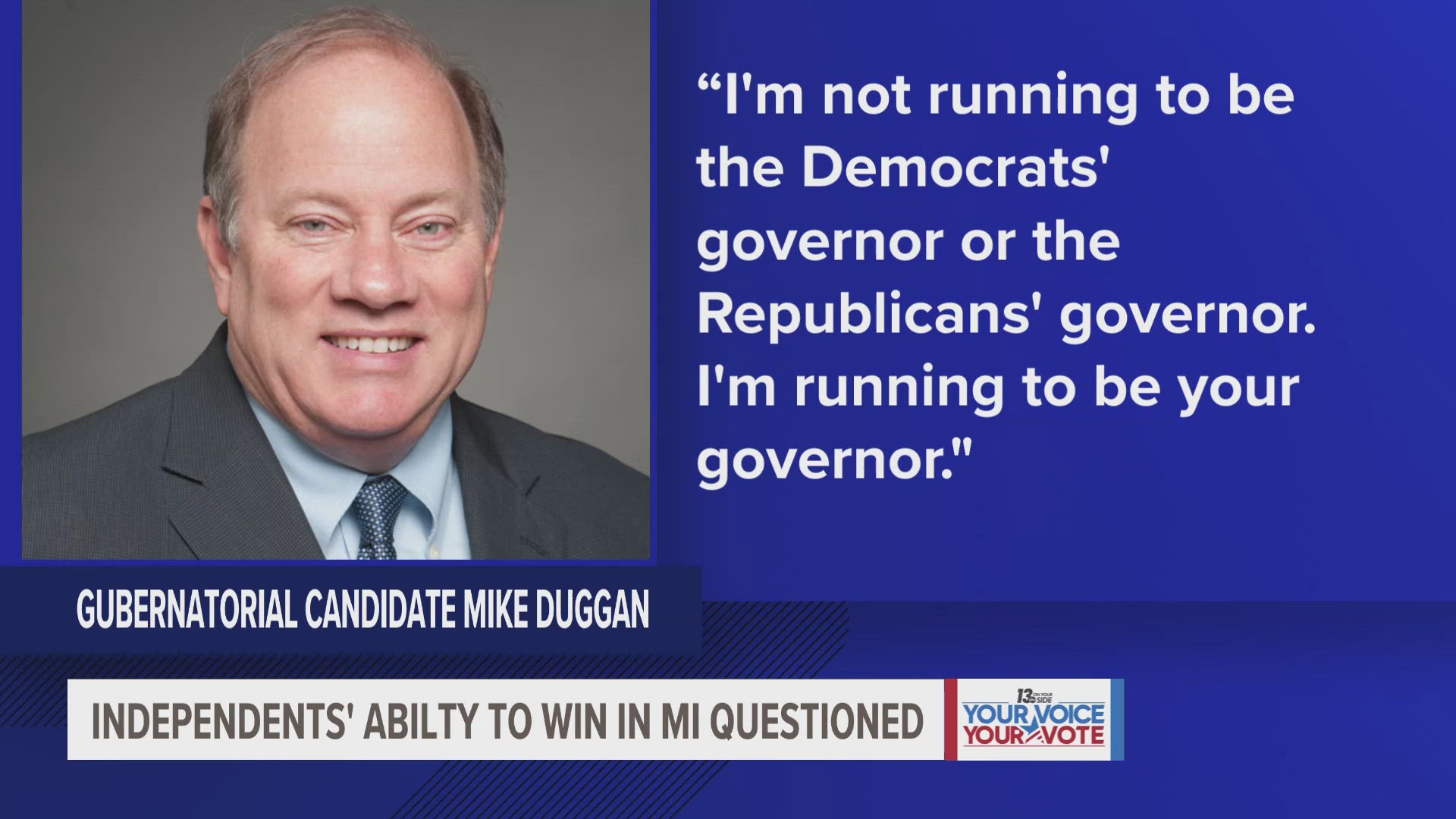GRAND RAPIDS, Mich. — When Democratic Detroit Mayor Mike Duggan announced last week that he would seek the Michigan governor's office in 2026, his declaration may not have come as a surprise to some.
The Associated Press had made note of speculation surrounding a Duggan run for the office.
What did come as a surprise to many, however, was his decision to run not with his current political party, but as an Independent.
"I'm not running to be the Democrats' governor or the Republicans' governor," Duggan said in a statement announcing his candidacy. "I'm running to be your governor."
"The political fighting and the nonsense that once held back Detroit is too often what we’re seeing across Michigan today," he continued. "The current system forces people to choose sides—not find solutions. It’s time to change that. I intend to bring together Democrats, Republicans and Independents—and our young people, far too many of whom have given up on our political system—together to move Michigan forward.”
Whether Duggan's past as a Democrat may hinder his ability to rebrand himself remains to be seen as more candidates trickle into the race over the next two years.
But given Duggan's high-profile persona, coupled with the Mitten State's current political landscape, some are now asking one question: can an Independent win statewide in Michigan?
"The two-party system has a structure, there's an organization you can elevate a candidate," said Dante Chinni, the director of the American Communities Project at Michigan State University. "Without that, you're going to have to do it on your own, and that takes a certain kind of candidate with a certain resume and a certain set of accomplishments."
Chinni believes the success of an Independent depends on who that Independent is.
"The idea [is] that, 'Look, I can do this on my own, I've got the name recognition, people know who I am, I have a track record to run on, I can do it this way," Chinni said. "I don't think that opens the door to a lot of other people, unless they've got a similar resume, a similar type of name recognition."
But it's not just dependent on who the Independent is, Chinni said, but also who they'd be running against.
"For this to work for Duggan, the Democrats would need to pick somebody pretty far left in their primary process, so that these suburban places where I think about as much more moderate, would look at the field and say, like, 'Hmm, I don't know. Like, Duggan might be the best choice here, because I'm not going to vote for the Republican, but that Democrat's not the right person for me,'" Chinni said.
While West Michigan and the Grand Rapids suburbs in particular have been home to a unique, microcosmic dynamic - forged from both a long-seated, traditional brand of Republicanism as well as recent growing momentum for Democrats - even here, the concept is largely an open question.
The one recent third-party member of Congress from the West side, former U.S. Rep. Justin Amash - who left the GOP and changed his affiliation mid-term - did not seek re-election in 2020 after leaving the party the year prior.
But if it does work for Duggan, Chinni believes it wouldn't just be Michigan under the spotlight.
"If Duggan does this, and it works in Michigan, that's going to get a lot of attention, because there is this idea of these blue wall states, right, which aren't really much of a blue wall anymore," Chinni began. "But like Pennsylvania, Michigan, Wisconsin, not just that, but even like Minnesota, kind of the upper Midwest - if this strategy works here, that would be interesting to see."

